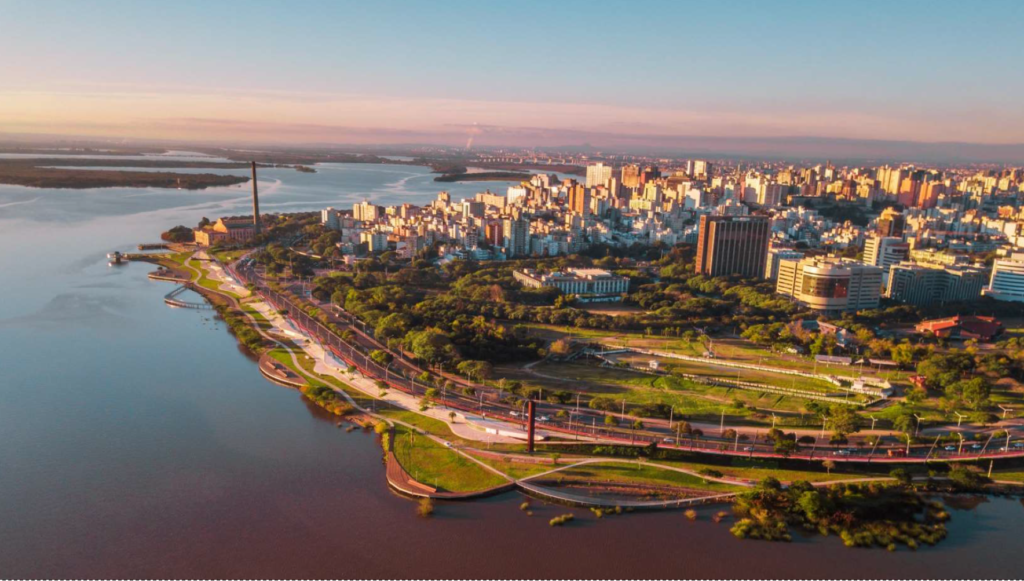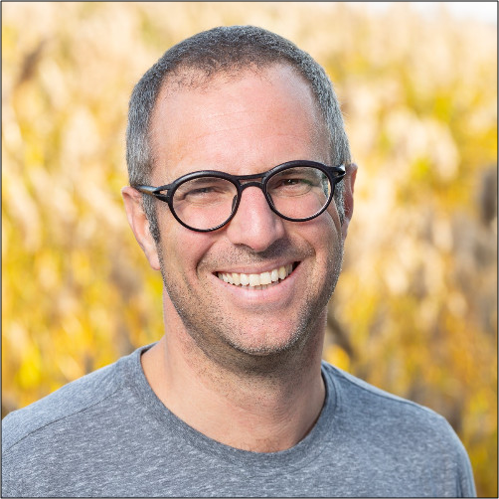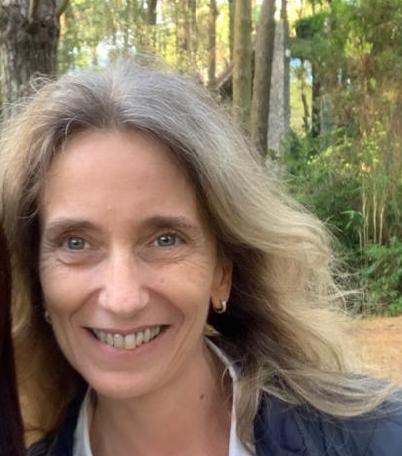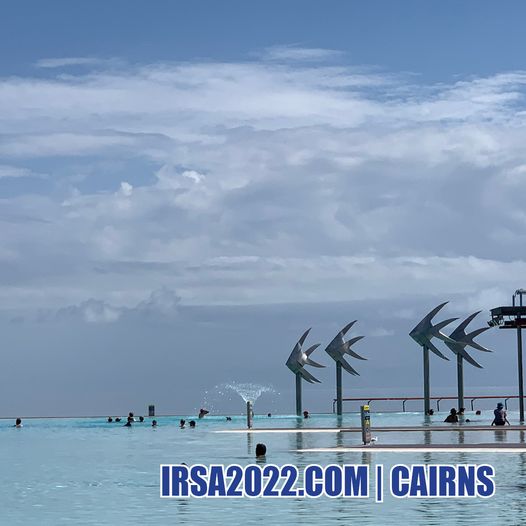Rudi Messner is a post-doctoral researcher at the Queensland University of Technology in Brisbane, Australia. After more than 25 years in the consumer goods industry, mostly in China, he received his PhD from the QUT Business School in 2021 with a thesis on the paradoxical economy of food waste in Australian horticultural supply chains. He is now working at the QUT School of Management and the Agrifood Systems Programme of the QUT Centre for Agriculture and the Bioeconomy. Rudi’s research interests include agrifood system impacts and the governance of food system sustainability transitions. He is currently involved in research projects on sustainable grazing and the wellbeing of beef producers and an industry project to map food waste in Australian red meat supply chains. Rudi has recently commenced a new role as a post-doc on a three-year Australian Government Research Council grant titled “On-farm food shocks: Transitions to future food security”.
The XVI World Congress of Rural Sociology
The International Rural Sociology Association is pleased to announce that the XVI World Congress of Rural Sociology will be held in Porto Alegre, Brazil, in July 2026. The Federal University of Rio Grande do Sul be hosting the event in collaboration with the Asociación Latinoamericana de Socioloogía Rural (ALASRU). More details will be announced later.

IRSA President: Sally Shortall
Professor Sally Shortall is the Duke of Northumberland Chair of Rural Economy in Newcastle, UK, and holds an appointment in the South East Technology University, Ireland. She is interested in women’s role in agriculture, farm families, ecological transitions and farm safety. She is an elected Fellow of the UK Academy of Social Sciences, and an International Fellow of the Royal Swedish Academy of Agriculture and Forestry for services to agriculture. Sally has twice served as the President of the European Society for Rural Sociology, and previously as First Deputy Vice-President of the International Rural Sociology Association. Current research includes leading a Horizon Europe project examining the role of rural and farm women in leading ecological transitions across Europe. Professor Shortall is an Irish citizen.
Members of the IRSA board: Hugh Campbell
Professor Hugh Campbell is the Chair of Sociology at the University of Otago, Dunedin, New Zealand. He is also a Visiting Professor at Ruralis, Trondheim, Norway, and Visiting Scholar at Kyoto University. He is interested in alternatives to mainstream farming practices, agri-food governance, de-colonial scholarship, agrarian extremism and gender dynamics in rural areas. From 2000-2010 he was full time Director of the Centre for the Study of Agriculture, Food and Environment at the University of Otago, and took a leading role in a number of research projects into the dynamics of agri-environmental change in New Zealand. His current research activities involve: farming, colonisation and de-colonisation in New Zealand, the rise of agrarian extremism, climate change adaptation and farmers, and the implications of the rise of cultivated proteins for agri-food systems.
Members of the IRSA board: Joost Dessein
Prof. Joost Dessein (°1971) is Associate Professor (tenured) at the department of Agricultural Economics (Ghent University, Belgium), and an affiliated member of the Centre for Sustainable Development (Ghent University). He holds an Msc in Agricultural Engineering and a Msc and PhD in Social and Cultural Anthropology. Joost is president of the European Society for Rural Sociology.
With colleagues of the research group INSPIRA (Institutional, Socio-economic and Political Issues in Rural-urban Areas) he focuses on the governance of local food system, and related themes such as social and environmental justice and food democracy. He also studies the political and epistemological context of agro-ecology and the role of different knowledge systems in the transitions of the food system. His research has a strong though not exclusive focus on the Global South.
Members of the IRSA board: Carla Gras
Carla Gras is Senior Researcher for the National Council of Scientific and Technological Research of Argentina (CONICET) in the Interdisciplinary School of Social Studies at the University of San Martín, Buenos Aires, Argentina. She is Professor in the School of Sociology at the University of San Martín. Her research focuses on the political economy of agrarian change in Latin America with particular reference to Argentina. Her interests include agrarian class differentiation, agribusiness expansion, the financialization of farmland and agriculture, and corporate and family farming organizations. She has done research and fieldwork in the Pampa and Northwester regions of Argentina. She has been VicePresident of the Latin American Rural Sociology Association (ALASRU) between 2018-2022. At present, she is Associate Editor of the Journal of Agrarian Change.
Members of the IRSA board: Leif Jensen
Leif Jensen is Distinguished Professor of Rural Sociology and Demography at The Pennsylvania State University, USA. He received a B.A. in Sociology from the University of Vermont and an M.S. and Ph.D. in Sociology from the University of Wisconsin-Madison. His areas of specialization include demography, social stratification, and the sociology of economic change. His publications focus on a range of topics including poverty and inequality, underemployment and employment hardship, informal work, and immigration. In his international work he has studied children and youth, and gender and agriculture. Much of his scholarship focuses on rural people and places, and rural/urban differences. Over the years his research program has been supported by grants from the U.S. federal government and private foundations.
Members of the IRSA board: Myrian Paredes
Myriam Paredes is an Ecuadorian rural sociologist that works as a professor and researcher at the Latin American Faculty of Social Sciences (FLACSO) in Ecuador. Her teaching and research focusses on heterogeneity studies with feminist perspectives to understand the different faces of Food Sovereignty. Myriam has served as a member of the Latin American Rural Sociology association directorate as well as the co-organizer of the TIERRA group, a rural sociology studies organization of Ecuador. Current research includes leading the project “Evaluating and bringing to scale alternative food networks to address diabetes mellitus and hypertension” implemented by the consortium EKOMER formed by Montreal University, FLACSO and the NGO Ekorural. With her family Myriam runs an agroecological farm outside Quito and a delivery scheme similar to a CSA.
The IRSA 2022 XV World Congress of Rural Sociology
New IRSA board
A new IRSA board has been elected.
President: Sally Shortall, University of Newcastle
Treasurer: Raymond Jussaume, Michigan State University
Members:
– Leif Jensen, Pennsylvania State University
– Keiko Tanaka, University of Kentucky
– Jan Flora, Iowa State University
– Carla Gras, National University of General San Martín
– Sergio Schneider, Federal University of Rio Grande do Sul,
– Myriam Paredes
– Dr Sarina Kilham, Charles Sturt University
– Dr Rudi Messner, Queensland University of Technology
– Prof Hugh Campbell, University of Otago
– Joost Dessein, University of Gent
– Ruth McAreavey, University of Newcastle
– Ilona Matysiak, Maria Grzegorzewska University Warsaw
– Fatmanil Doner, Istanbul Medenyet University
– Francesca Galli, University of Pisa
– Motoki Akitsu, Kyoto University
– Lutgarda Tolentino, University of Queensland
– Muhammad Saleh S. Ali
– Koichi Igegami, Kindai University
Board member bios will be posted to the website.











